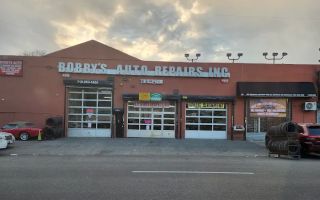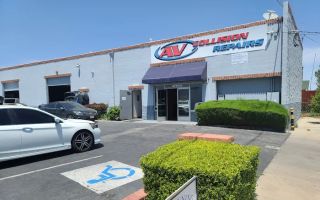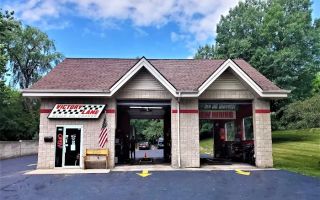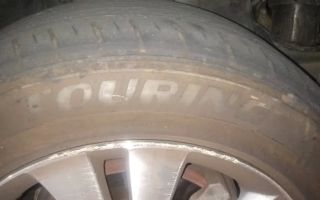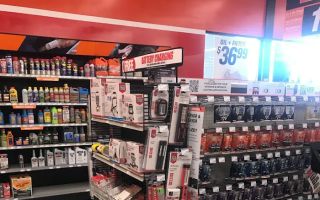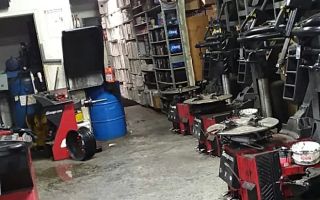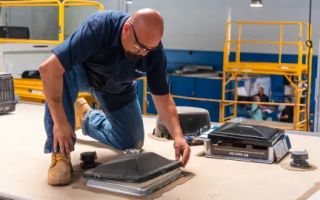What Causes My Car's Transmission to Slip? Causes and Solutions Explained
If you've ever been driving and felt your car's engine revving up without the vehicle gaining speed, or experienced jerking or hesitation as you shift gears, there's a good chance you're dealing with a slipping transmission. As a car owner who has dealt with this issue firsthand, I understand how frustrating and concerning a slipping transmission can be. In this article, I’ll explore the causes of transmission slippage, how to identify the problem, and what you can do to fix it.

Discount Transmission
14401 Hillside Ave., Jamaica, NY 11435, USA
1. Understanding What It Means for a Transmission to Slip
When your car’s transmission "slips," it refers to a situation where the transmission temporarily loses its connection with the engine. This results in a delay or sudden change in gear without the expected smooth transition. The engine will keep revving as normal, but the vehicle won’t move forward as it should. Think of it like a slippage between the clutch and the engine, where the engine's power is no longer properly transferred to the wheels.

Junior Auto Body Solutions LLC
10409c Merrick Blvd, Jamaica, NY 11433, USA
1.1 The Types of Transmissions That Can Slip
Not all transmissions slip in the same way. Manual transmissions can slip due to clutch issues, while automatic transmissions usually experience slipping due to internal mechanical problems, low fluid levels, or worn components. No matter the type of transmission, it’s important to address the problem immediately before further damage occurs.
2. Common Causes of Transmission Slipping
Several factors can lead to a slipping transmission. Some of the most common causes include low transmission fluid, faulty parts, and overheating. I’ve dealt with a slipping transmission in the past, and understanding what could be causing it is key to resolving the issue.
2.1 Low Transmission Fluid
One of the most common causes of transmission slippage is low transmission fluid. The fluid serves as both a lubricant and a coolant for the transmission, allowing it to function smoothly. If your transmission fluid is low, it will cause friction between the components, resulting in slippage. Over time, this can lead to more severe issues, such as overheating or even complete transmission failure. I had this happen to me once when I neglected to check the fluid levels and noticed that the gears were slipping as I was accelerating.
2.2 Worn or Faulty Parts
If your car is older or has high mileage, worn-out parts are another likely cause of transmission slipping. Internal components, such as the clutch, bands, or torque converter, can wear down over time. These parts are responsible for engaging and disengaging the gears. When they wear out, they can cause a delay or failure in gear shifting, which leads to slipping. When I had issues with a faulty torque converter, I had to replace it to restore proper functionality.
2.3 Overheating
Overheating can also contribute to a slipping transmission. High temperatures can cause the transmission fluid to break down, reducing its effectiveness and leading to friction. This can be exacerbated if there’s a lack of proper cooling or if the transmission is being overworked. I once had a vehicle that overheated during a long drive, causing the transmission fluid to degrade, resulting in noticeable slippage. It’s crucial to keep an eye on your car’s temperature gauge and address overheating issues quickly to prevent transmission problems.
3. Symptoms of a Slipping Transmission
Knowing the signs of a slipping transmission can help you identify the problem early, before it becomes a major issue. Some common symptoms of transmission slippage include:
3.1 Unusual Noises or Sounds
If you hear whining or grinding noises when your car is shifting gears, it could be a sign that your transmission is slipping. These noises may occur as the gears fail to fully engage or disengage properly. In my experience, these sounds were one of the first signs I noticed that led me to investigate the transmission issue.
3.2 Hesitation or Delay in Shifting Gears
Another common symptom is a delay when shifting from one gear to another. When a transmission slips, you may experience hesitation or an extended pause before the car shifts into gear. If you feel this delay, it’s a sign that your transmission isn’t properly engaging.
3.3 The Car’s RPMs Suddenly Increase
If your engine revs higher than normal without an increase in speed, this could indicate that your transmission is slipping. The engine speed increases because the transmission isn’t transferring power efficiently to the wheels. This was exactly what I noticed when my transmission began slipping—it felt like the engine was working harder than it should without making any real progress.
4. How to Fix a Slipping Transmission
Fixing a slipping transmission depends on the root cause of the issue. Here are some potential solutions that can help fix the problem:
4.1 Check and Replace Transmission Fluid
If low fluid is the cause of the slipping, simply topping up or replacing the transmission fluid may resolve the issue. Be sure to use the correct type of fluid for your vehicle, and if you’re unsure, consult the owner's manual or a professional mechanic. I had to change my transmission fluid when I noticed slippage, and it made a noticeable improvement in my vehicle's performance.
4.2 Get Worn Components Replaced
If the issue is due to worn parts, you’ll need to replace the faulty components. This could include the clutch, bands, or torque converter. For major repairs, it’s best to consult a transmission specialist who can diagnose the exact issue and recommend the right parts. In my case, replacing a worn torque converter fixed the slipping transmission problem.
4.3 Prevent Overheating
To prevent overheating and the associated transmission slippage, ensure that your cooling system is working properly. Check your radiator and coolant levels regularly to avoid excessive heat buildup. During long drives, take regular breaks to let your vehicle cool down. I found that after addressing the overheating problem, my transmission performed much more smoothly.
5. When to Seek Professional Help
While some transmission problems can be addressed with basic maintenance or fluid changes, others may require professional repair. If the slippage continues even after checking fluid levels, replacing worn parts, and ensuring proper cooling, it’s time to consult a mechanic. Transmission repairs can be costly, so it’s best to address the issue early to prevent further damage.
If you're in need of professional transmission repair or towing services, visit Rescue & Towing for reliable assistance. Keeping your transmission in good condition ensures the longevity of your vehicle, so don't wait until it's too late!

